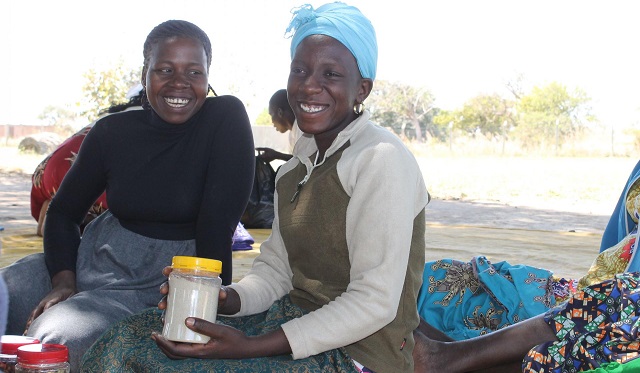
Omoro, Uganda | THE INDEPENDENT | Mothers in Omoro district are using organic foods to fight malnutrition in children, breastfeeding mothers, and elderly persons. Spread across the district, the women formed farmer groups in 2019, which are tasked with plant breeding, food preservation, marketing, processing, and packaging of the neglected and underutilized organic food species deemed nutritious.
The Nutrition-Sensitive Agriculture program promotes the growth of organic food products such as edible wild fruits, cereals, tubers, and vegetables. It is being supported by the International Institute of Rural Reconstruction (IIRR).
They include cowpea plant (boo), spinach, oyado, hibiscus species (malakwang), okra (otigo), eggplant (bili nyanya), tula, lamola, ocwica, lala, black beans (muranga ocuc), peas leave (boo ayom), bwanya, opelo, yams (mayundi), black fruit (oywelo), shea nut tree (yaa) and ocuga.
Nancy Akidi Mirriam from Waribu Cing Group, told URN that the initiative arose from the problems of malnutrition which have become a burden among breastfeeding mothers, children, and elderly persons in the district.
She notes that organic foods are readily available, easy to plant, very nutritious, and can be preserved in various forms and for a long time.
Everline Aber from Warom Group said that since its inception, they have been able to support hundreds of breastfeeding mothers and malnourished children in the community at no cost. She notes that they identify the affected persons and provide them with the organic food products that they plant locally in their homesteads and store in the group’s seed bank.
Vicky Amarorwot, a nutrition specialist says that organic foods are rich in varieties of food values that help in combating malnutrition, noting that most of them have iron, vitamins, and iron among other nutritive values which increases the production of breast milk and body immunities.
Robert Kalisa, the International Institute of Rural Reconstruction (IIRR) Programs Manager says they are supporting the farmers to promote neglected and underutilized plant species and local food plants that are very nutritious but neglected with no support.
He explained that they want farmers to multiply local food plants to help improve food security and nutrition and also assist them in packaging, certification, good storage, and marketing their products.
Reports from Lalogi health centre IV in Omoro district indicate that malnutrition is still a health burden in the area with at least 50% of patients presenting with it.
*****
URN
 The Independent Uganda: You get the Truth we Pay the Price
The Independent Uganda: You get the Truth we Pay the Price



